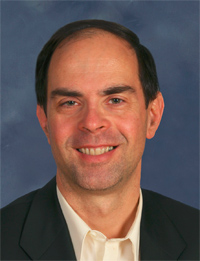TechLines panelist profile: IBM's James Kobielus on big data talent

Data scientists could become the developers of the next generation of enterprise systems as analytics, big data and business intelligence all blend together.
That's the argument from James Kobielus, IBM's big data evangelist and our fifth panelist for Oct. 4's TechLines panel in New York City.

TechLines panelists: T-Mobile's Christine Twiford | Archimedes' Katrina Montinola | Ford's Michael Cavaretta | NASA's Nicholas SkytlandKobielus, who was an analyst for Forrester Research, said that the data scientist will ultimately occupy a developer role. "There will be a core group of modelers focused on statistical analysis, business intelligence and new specialties such as sentiment analysis," explained Kobielus. "Data scientists will come into the game when traditional business intelligence can't quite meet the needs of the enterprise."
Data science has been around for decades, but now is becoming more mainstream amid an information explosion. Meanwhile, new tools such as Hadoop and NoSQL approaches are causing a demand spike for talent.
"When you look at the job listings, there's clearly demand for data scientists," said Kobielus. "It's a boom period. There's a shortage of people who can do modeling work with Hadoop and MapReduce."
The talent shortage in big data is a hot topic among technology leaders. At a conference held by Temple University last week, tech leaders repeatedly bemoaned how hard it was to find talent. A bevy of companies are taking in-house talent and supplementing it with consultants and third parties. In the long run, these companies are teaming up with universities to create curriculum to create a pool of data scientists.
Among other notable points from Kobielus:
There's a historical comparison between big data and Linux, which took about a decade to become a mainstream data center staple.
Standardization could become an issue for big data. There is no standard big data building block, but Hadoop comes close. Kobielus said big data could adopt standards like services oriented architecture (SOA) did. He also wondered if there would be distro wars in the big data market.